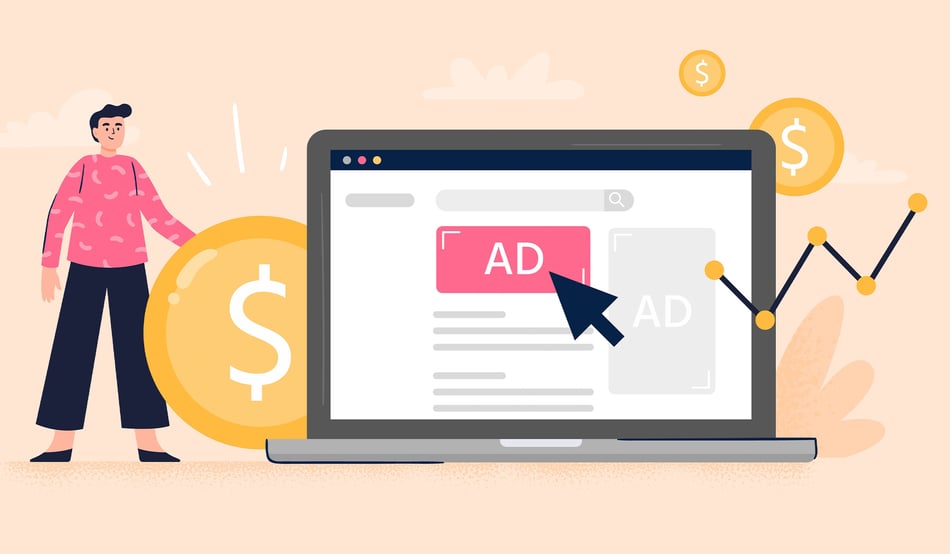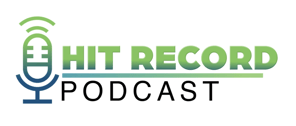Episode 34 - How to Get the Most Out of Digital Ads for Your Bank or Credit Union


Don't Miss An Episode, Subscribe Now

What is the most consistent conversions that marketers and executives at a bank or credit union can hope for when they're running digital ads online for their products and services?
- Products with the less convoluted or complicated buying journeys tend to do better.
- The buying journey for financial products and services is very long compared with other products such as consumer goods.
- Do not run your ad strategy like you're an easily purchased consumable good.
The FI GROW team discusses which financial products and digital ad strategies work best for banks and credit unions.
Transcription:
If you're looking for best practices for your bank or credit union, join us while we talk all things sales, marketing, and strategy for financial institutions. Let's make it happen with FI GROW Solutions.
Meredith Olmstead:
Hi, there. I'm Meredith Olmstead, founder and CEO of FI GROW Solutions. We are an inbound marketing and sales consulting agency. And we work exclusively with financial institutions, with banks and credit unions. And I am here with our digital ads manager, Ida Burr. Say, hi, Ida.
Ida Burr:
Hello, everyone.
Meredith Olmstead:
And Ida and I were just having a great conversation about what digital ads that she manages for our clients, which kinds of ads for different product lines, for banks and credit unions, convert more than others. What is the most consistent conversions that marketers and executives at a bank or credit union can hope for when they're running digital ads online for their products and services? I was like, "Let's hit record and talk a little bit about this." Because I think this is something that we have a lot of knowledge about because we have lots of different clients in lots of different marketplaces and we're running ads for them for large varieties of their products and services at their bank or credit union. And so we wanted to share what we see overall in terms of consistency of lead generation and really closing new accounts and loans.
Generally, I think the takeaway from our conversation when we were talking about it is that products with the less convoluted or complicated buying journeys tend to do better when you're running digital ads for them. We know financial products and services sometimes can take a couple of days for somebody to make a decision about if they want to apply for a loan or a credit card or a mortgage, can take a couple of days up to, depending on the product, up to months even. So the buying journeys for financial products and services are very long compared with other digital ads or consumer journeys online. We're not selling a pair of shoes here. Right? You guys are selling really important financial products and services. And so that's the biggest difference, is you can't run your ad strategy like you're selling a widget online, purses or some other kind of easily purchased consumable, like consumer product. Generally Ida, where do you see the products that work the best through digital advertising?
Ida Burr:
Yeah, like you were saying, products that can involve a very long sales journey are typically a little harder to track and to... You don't really see that instant value add. I remember when the housing market was really hot and we had mortgage campaigns going for a lot of clients, people were getting pre-approved for mortgages, but they weren't able to find a house to buy. So we had these people in the works for months and months and months.
Again, the types of products that do really well are shorter, things like people looking for a new bank, people actually searching for banks near me or opening checking account online. We call those credit union bank campaigns. And those are just people who are in market actively searching, trying to find a financial institution, whether they're switching or they're a young person who just got their first job and is looking to get a debit card and a checking account. And also we see things like credit cards, they do pretty well because people, again, you can apply for those online pretty easily. As well as personal loans. We see success with those as well.
Meredith Olmstead:
Gotcha.
Ida Burr:
You do have to be a little careful with the personal loans, but they do drive a lot of leads.
Meredith Olmstead:
In general then, we definitely see you can drive a lot of leads in the door with something like a mortgage or home equity or wealth management, but the issue becomes tracking them all the way through to closing those loans. Because sometimes closing loan can be 30 or 60 days. Sometimes those leads are going to languish around for months, looking for a home or making a decision about whether or not they really want the line of credit. That does skew the ability to really show visible value or ROI on those campaigns, for sure. I know when we run personal loans, you keep an eye, you're always asking, "What's the quality of leads coming in?" Because you can make some adjustments to make sure to lessen the fraud possibilities around personal loans. Tell me a little bit more about that?
Ida Burr:
Yeah. Just constantly going in there and making sure you're looking at what the actual search terms are that people are typing in and are converting. You're able to do that right in Google Ads in the tool, just making sure you're not getting people searching, "Horrible credit, need instant loan. No credit check, personal loan." Those obviously you want to add to the negative keyword list. But also getting feedback from our clients, like, "What are the leads looking like coming in? Have you been seeing any fraud?" For some reason, it seems there's fraud sometimes around those types of keywords with personal loans. Even payday loan type keywords we want to avoid.
But if we are getting a lot of bad applications, we will narrow the audience even more. In Google Ads, you can exclude people that do not have known income by Google. And that just helps us make sure that this is a real person. How creepy Google is, they know everything about everyone.
Meredith Olmstead:
So it's not like-
Ida Burr:
If we don't know you have an income, then we probably shouldn't be showing ads to you.
Meredith Olmstead:
... Gotcha. So it's not narrowing by income? You're not saying, "Oh, we only want people who make $100,000 a year," but it's more like just saying, "Look, we want these to be known people who do have jobs, who are individuals." And that, while it will narrow the audience, it can help reduce the number of fraudulent applications of people out there, scammers out there trying to get over and put in fake information on an online application. That's definitely good to know.
Ida Burr:
Absolutely.
Meredith Olmstead:
You don't always run that, but only if you see fraud coming in?
Ida Burr:
Yeah. For some reason, certain areas tend to have and could have a little bit more. So that is just another little trick I have found over the years that helps with that. But we do experience it.
Meredith Olmstead:
Yeah. I mean, generally I think what we really like to see is the conversion process of generating the lead, it needs to be as simple as possible, you want to make sure that there's intent behind the keywords, that people are definitely ready to take some action when they're actually searching and you're hoping for, or expecting a conversion. You want to make sure that there is action, intent behind those searches and the keywords that you're targeting. And then you want to make sure that when people land on whatever landing page or website page that has more information and that is going to offer the conversion possibility to them, that it matches with the language coming out of the ad experience for them. That's awesome. Is there anything else you can think of that people really need to keep in mind when they're deciding where to spend their ad dollars?
Ida Burr:
I mean, I don't remember if we brought this up, but making sure too, that you have online applications available.
Meredith Olmstead:
Gotcha. Okay.
Ida Burr:
I don't remember if we were talking about it before we hit record or after we hit record, but that is a really important part of the equation as well. Because if somebody's searching online for something, most likely, they're going to want to be able to do it all from their computer or from their phone.
Meredith Olmstead:
Yeah. And then again, if it's just lead generation, but you don't actually have the online application live and available, it becomes harder to track all the way through to bottom line revenue impacts-
Ida Burr:
Absolutely.
Meredith Olmstead:
Because you end up having to get into a different system or manually follow up with sales to see what happened to those leads. And that's where things fall through the cracks. For sure.
Ida Burr:
Yeah.
Meredith Olmstead:
All right. Awesome. Well, thank you so much, Ida. This has been really helpful.and I just wanted to let everyone know, we have lots of great information on our website. Feel free to jump into our academy. We actually have classes in the academy that actually teach you what Ida implements for our clients around pay per click and social media ads, as well as optimizing your website for lead conversion for sales and for Google results. So lots of great information. We also have lots of other podcasts on topics that help your bank and credit union grow and meet your needs and your goals for the year. Otherwise, let's just all get out and make it happen.








Blog comments